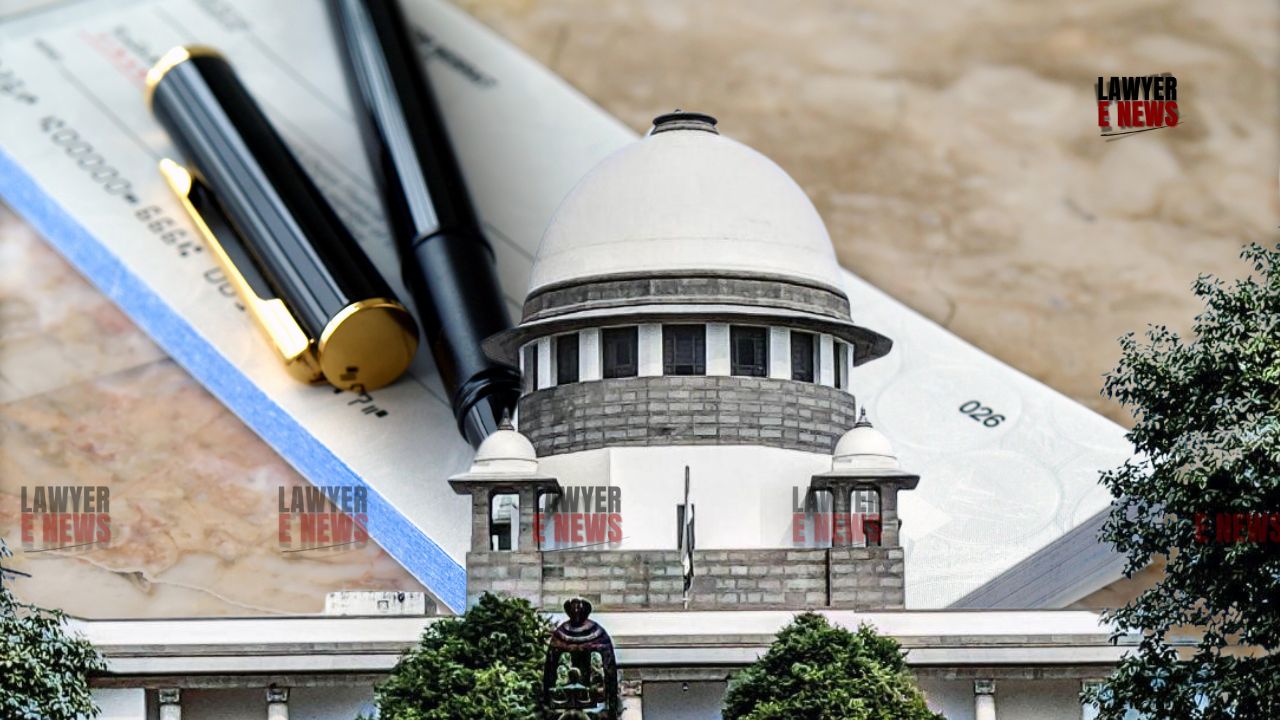-
by Admin
15 February 2026 2:36 AM



Quashing Complaints Without Trial Denies Justice: High Court’s Premature Intervention Overturned - Supreme Court of India set aside an order of the Allahabad High Court that quashed a criminal complaint under Section 138 of the Negotiable Instruments Act, 1881 (NI Act). The Court held that a Power of Attorney (PoA) holder can validly file a complaint under Section 138 NI Act if explicit averments establish that they have sufficient personal knowledge of the facts.
The judgment, delivered by a Bench comprising Justices B.R. Gavai and K.V. Viswanathan, restored the complaint filed by M/S Naresh Potteries, represented by its Manager and Power of Attorney holder, Neeraj Kumar. The Court emphasized that the High Court had erred in prematurely quashing the complaint without allowing the trial court to test the merits of the case.
Dishonoured Cheque Sparks Criminal Complaint
The case originated from a commercial transaction between M/S Naresh Potteries (appellant), a sole proprietorship engaged in manufacturing, and M/S Aarti Industries (respondent), represented by its sole proprietor, Sunita Devi. The appellant supplied goods worth ₹1,70,46,314 to the respondent, who issued a cheque for the same amount. However, the cheque, dated July 10, 2021, was dishonoured for the reason “exceeds arrangement.”
On July 15, 2021, the appellant served a legal notice under Section 138 of the NI Act, demanding payment. After the respondent failed to comply, the appellant filed a complaint before the Additional Chief Judicial Magistrate, Khurja, Bulandshahar. The complaint was filed by the appellant's Manager, Neeraj Kumar, authorized through a Letter of Authority issued by the sole proprietor, Shakti Khanna. The trial court, satisfied with the evidence and affidavits under Section 200 of the Code of Criminal Procedure, 1973 (CrPC), issued summons to the respondent.
The respondent approached the Allahabad High Court under Section 482 CrPC, seeking to quash the complaint. The High Court quashed the complaint, citing a lack of explicit averments regarding the PoA holder’s personal knowledge of the transaction.
Legal Standing of Power of Attorney Holder
The Court reaffirmed the principle that a PoA holder can validly file and prosecute a complaint under Section 138 NI Act on behalf of a payee or holder in due course, provided they possess personal knowledge of the transaction and explicitly state the same. It relied on A.C. Narayanan v. State of Maharashtra (2014) and TRL Krosaki Refractories Ltd. v. SMS Asia Pvt. Ltd. (2021), which laid down the legal framework for complaints filed by authorized representatives.
The Court observed:
“The power-of-attorney holder cannot file a complaint in his own name as if he was the complainant. However, when duly authorized and personally aware of the transaction, the PoA holder acts as an agent of the principal, and the complaint is filed in the name of the payee or holder in due course.”
Explicit Averments Establishing Knowledge
The Court noted that the appellant had made explicit averments in the complaint, affidavit, and Letter of Authority to demonstrate Neeraj Kumar’s personal knowledge of the transaction. It highlighted the following:
The Letter of Authority stated that Neeraj Kumar was “well-conversant with the transactions” and authorized to represent the appellant.
The affidavit filed under Section 200 CrPC confirmed that Neeraj Kumar was aware of the facts leading to the cheque’s dishonour.
The Bench clarified:
“What constitutes an ‘explicit averment’ cannot be reduced to a rigid formula. The context, language, and facts of each case determine whether sufficient knowledge has been demonstrated. In this case, the materials unequivocally establish that the PoA holder had the requisite knowledge.”
Premature Exercise of High Court’s Powers Under Section 482 CrPC
The Supreme Court reiterated that the inherent powers of the High Court under Section 482 CrPC must be exercised sparingly and only in cases where the complaint is frivolous or devoid of substance. It criticized the High Court’s approach:
“The High Court quashed the complaint at the threshold, effectively denying the trial court an opportunity to examine the merits. Such premature intervention is unwarranted, especially when the foundational requirements for filing the complaint are satisfied.”
Distinction Between Issues of Authorization and Trial
The Court observed that any disputes regarding the authorization or personal knowledge of the PoA holder could be tested during the trial. It emphasized:
“The issue of proper authorization and personal knowledge is a matter for trial. Dismissal of a complaint at the threshold on these grounds undermines the principles of fair trial and access to justice.”
The Supreme Court allowed the appeal and passed the following directions:
The High Court’s judgment quashing the complaint and summoning order was set aside.
Complaint No. 701 of 2021 was restored to the file of the trial court for adjudication on merits.
The trial court was directed to proceed in accordance with law, ensuring a fair trial.
The Court concluded:
“The premature quashing of complaints under Section 138 NI Act disrupts the statutory framework for adjudicating dishonoured cheque cases. A trial court must be allowed to examine the merits before dismissing a complaint.”
Date of Decision: January 2, 2025
